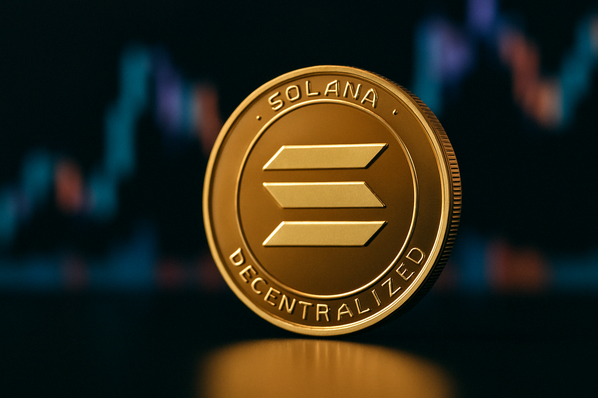TLDR
- Canary Capital has revised its Solana ETF proposal, confirming Marinade Finance as the exclusive staking provider for at least two years.
- Franklin Templeton’s filing expands the custody framework and introduces new tax language, addressing staking rewards and custody risks.
- VanEck’s updated filing includes new risk disclosures, highlighting potential issues like validator failures and network outages.
- Bloomberg analyst James Seyffart notes that the numerous filings suggest ongoing communication with the SEC and no regulatory pause.
- The filings demonstrate a strong institutional interest in Solana ETFs, indicating Solana’s growing significance as an investment product.
Solana ETFs moved forward this week as major issuers submitted amended S-1 filings with the U.S. SEC. Canary Capital, Franklin Templeton, and VanEck all revised their proposals to strengthen compliance and expand disclosures. The filings show growing engagement with regulators and highlight increasing institutional demand for Solana ETFs.
Solana ETF Allocates Funds to Marinade Platform
Canary Capital confirmed that Marinade Finance will exclusively provide staking services for its proposed Solana ETFs. The trust will allocate most of its Solana holdings to Marinade’s platform for a minimum of two years. Therefore, investors would see rewards reinvested after fees to strengthen the fund’s net asset value.
The filing also introduced Marinade’s instant unbonding feature to improve liquidity management for redemptions. This feature allows redemptions without waiting for Solana’s normal network unbonding cycles. Consequently, the ETF would improve its ability to respond to withdrawal requests quickly.
Canary Capital emphasized transparency by pledging to publish net asset value, full holdings, and pricing data daily on the ETF’s website. Hence, market participants will have regular updates on the trust’s performance and structure.
Franklin Templeton Expands Custody Framework
Franklin Templeton’s amended filing added further details on custody arrangements for its Solana ETFs. Assets will be split between hot and cold wallets to balance security with accessibility. Importantly, the custodian will maintain sole control of private keys at all times.
The document stressed that investors will not directly handle tokens. However, the firm highlighted that custody risks remain inherent to digital assets. It pointed to risks including slashing penalties, validator errors, and Solana network outages.
Franklin Templeton also included new tax language in its proposal. The fund intends to be treated as a grantor trust for U.S. tax purposes. Yet it acknowledged uncertainty regarding taxation of staking rewards.
VanEck Stresses Ongoing SEC Dialogue
VanEck’s amended S-1 filing aligns with the broader wave of Solana ETFs updates. Bloomberg analyst James Seyffart noted the revisions demonstrate active communication with the SEC. He explained, “The numerous filings suggest ongoing dialogue and no pause in regulatory review.”
VanEck highlighted new risk disclosures in its submission. These included the possibility of forks being excluded and potential abandonment of airdrops. Such additions expanded the range of risks compared with earlier drafts.
The filing confirmed that additional asset managers are expected to amend their applications soon. Seyffart observed that the process indicates strong demand for Solana ETFs. Thus, the filings underline Solana’s growing significance as an institutional investment product.








